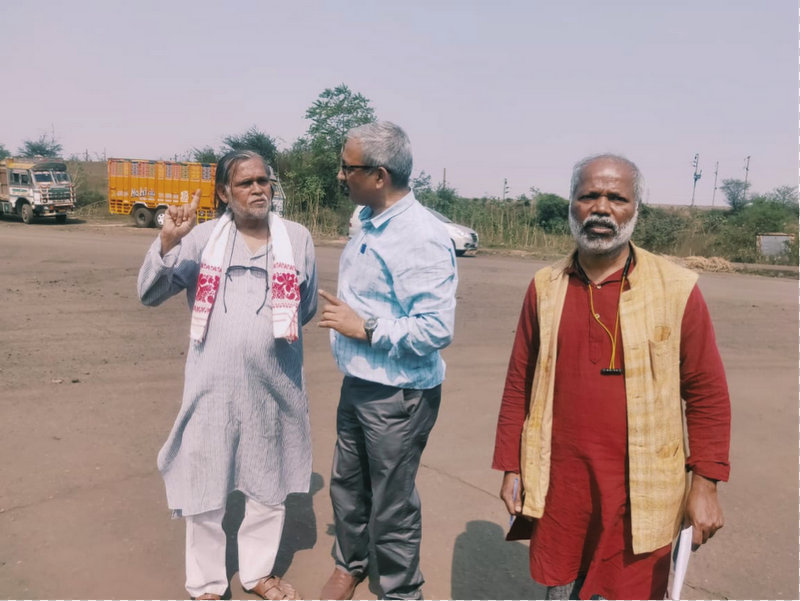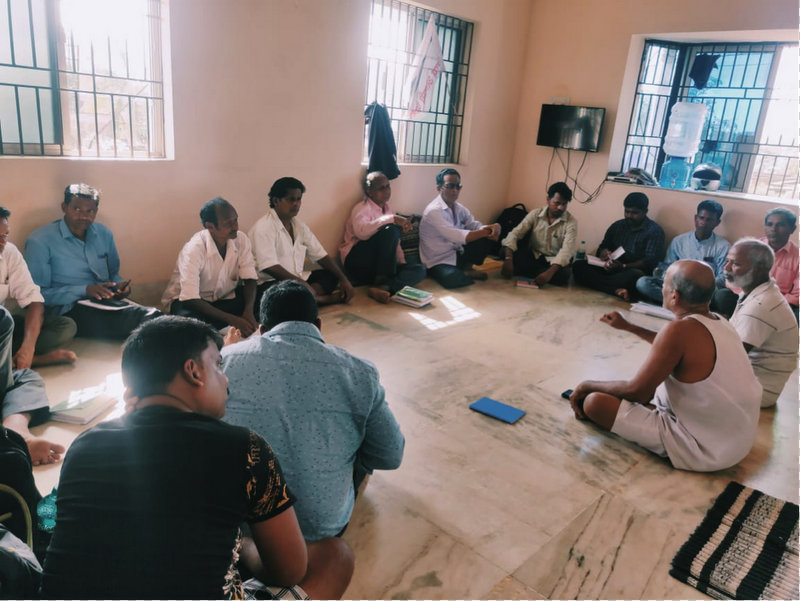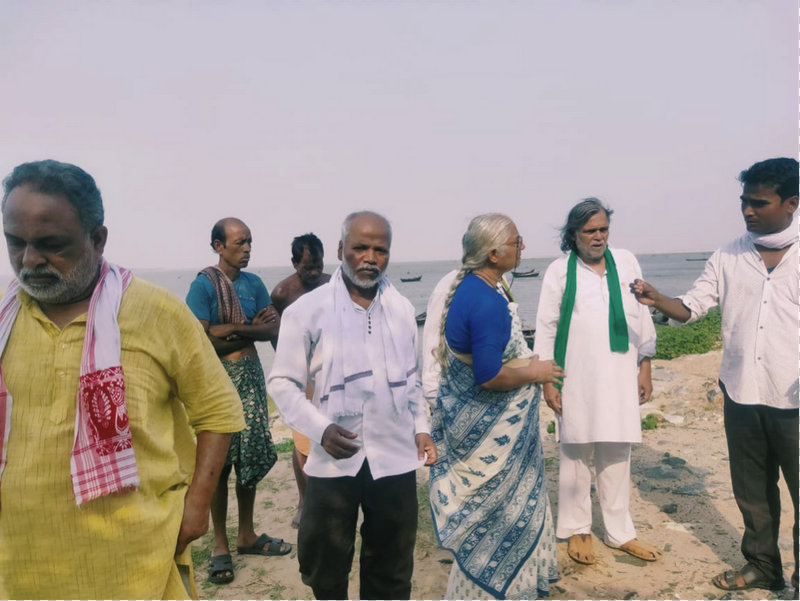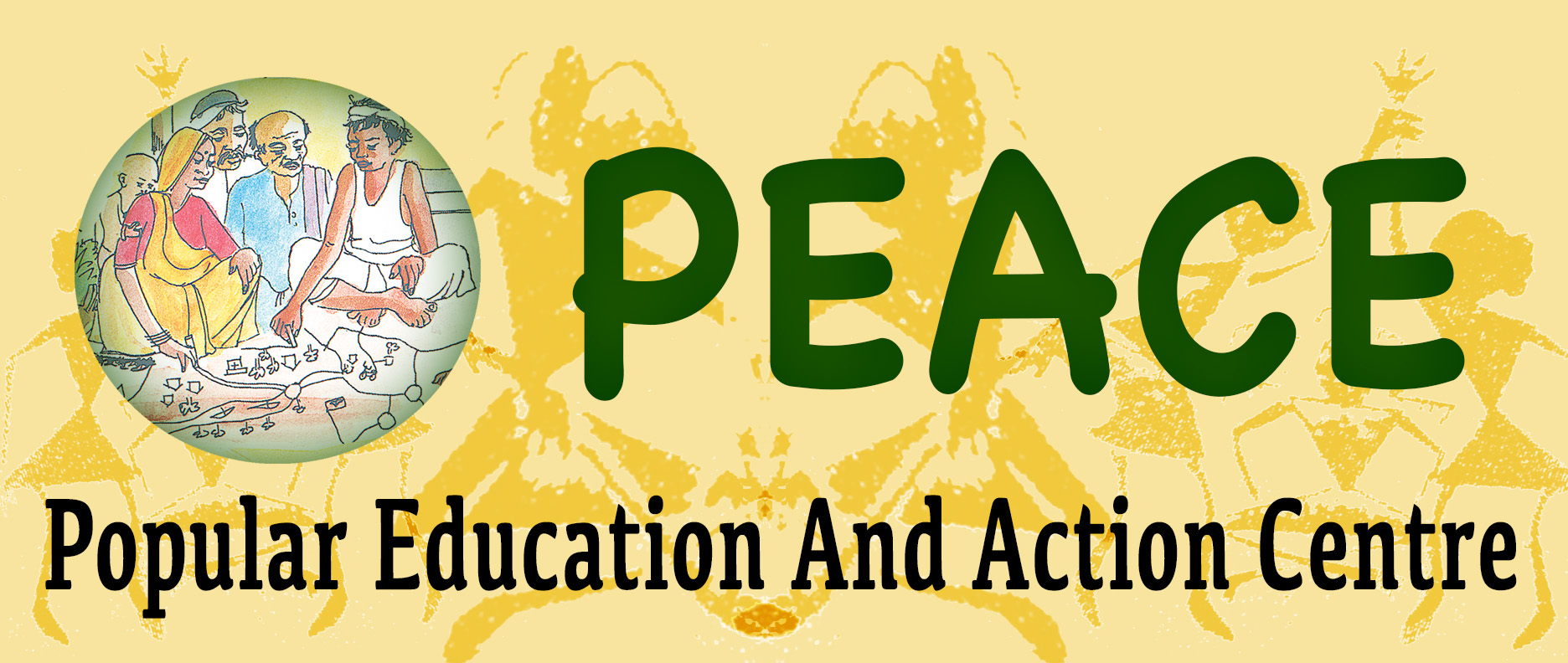
Kalyan Anand
Name of Fellow: Kalyan Anand
Genre: Social and Economic Justice
Area of Work: Odisha
Kalyan Anand is a veteran social activist from Odisha working on Dalit and Adivasi rights, issues of displacement and labourers, and women’s rights. He is actively associated with various social action groups working in Odisha.
After losing his mother at the age. 4 years, he was forced to spend his next childhood at various places. At that time, he went his maternal uncle’s house to stay there but when his father claimed property of his mother, then his family was disowned by his relatives from his mother’s side. From there he had to move to his aunt’s house where he started his early education. In this process, up to the age of 15 years, he was moving to various places.
 Two incidents— disowning by his relatives and social isolation— highly impacted Kalayn during his early years. When he was a child, he was made to attend the court where his maternal uncle declared that he had no relationship with Kalyan. As a child he could not understand and traumatized by the statement he ran away from the court room. Later when his family was harassed, assaulted, and hurled abuses by those who were in power for their political affiliation. At this time, from these two incidents, he realized that discrimination, injustice and inequality existed in the society. Those having power misused it to settle scores with the marginal people. However, he also got sympathy from people from other villages and from socialization he learnt that people with humble nature were there to help.
Two incidents— disowning by his relatives and social isolation— highly impacted Kalayn during his early years. When he was a child, he was made to attend the court where his maternal uncle declared that he had no relationship with Kalyan. As a child he could not understand and traumatized by the statement he ran away from the court room. Later when his family was harassed, assaulted, and hurled abuses by those who were in power for their political affiliation. At this time, from these two incidents, he realized that discrimination, injustice and inequality existed in the society. Those having power misused it to settle scores with the marginal people. However, he also got sympathy from people from other villages and from socialization he learnt that people with humble nature were there to help.
At that time, as a teenager, Kalyan started his own club along with some other village youths. From here, his social activism started and has been continuing for more than three decades.
The first venture he started was school in his village when he was in tenth standard. He used to educate children and other people and make them aware about the importance of education.
 At the age of 17, he got associated with a social action group in his district and started devoting his fulltime to social work. Even during his teenage years, he envisioned of society where extreme poverty, hunger, ill health did not exist. He believes that inequality, discrimination, injustice should not exist in society. These were the experiences from which largely influenced him to continue his social work.
At the age of 17, he got associated with a social action group in his district and started devoting his fulltime to social work. Even during his teenage years, he envisioned of society where extreme poverty, hunger, ill health did not exist. He believes that inequality, discrimination, injustice should not exist in society. These were the experiences from which largely influenced him to continue his social work.
During his social work, he extensively travelled the state and used to make communities aware about caste-based injustice, discrimination, social hierarchy etc. After working more around three years in different parts of Odisha, he left the state for 14 years to work on secular values. He believes that humanity teaches taking care of each other and that should be the highest values, but religiosity and caste discrimination were hampering the progress of the society. He devoted these 14 years to teach communities about the values of humanity and secularism to eradicate communal hatred and casteism.
When he returned to Odisha after extensively travelling the country and abroad, he witnessed the devastation that had occurred by the Super Cyclone of 1999. People had become dependent on others, hunger, poverty had plagued the society. People were fighting for small things, reports of thefts of small things were everywhere. Seeing all this he decided to work in Odisha.
In this process he got associated with RTI movement, NAPM, Jan Sangharsh Samanvaya Samiti
etc. and other social movements. Working with these national movements, his ideas about issues got clearer. As a trainer, he trained people about filing RTIs after the law was enacted in 2005. He trained 5000 to 10000 people from every district about the process of filing RTIs and many people learnt about the importance of the law.
He says that people are exploited by only a handful persons. Citing the example of Odisha, he argues that despite being a resource rich state, people of Odisha are highly impoverished, tribals are rampantly displaced losing their livelihoods. In a state where mining of resource is going on in massive quantities, people are forced to migrate in search of livelihood. This fact makes it evident that natural resources, on which everyone has equal right, are going to the pockets of only few whereas the poor are becoming poorer. So, he believes that people are looted and peoples’ movement must continue without any compromise to get the people their fair rights over the natural resources.
He expended his work to create farmers’ collectives consisting of Adivasis, other indigenous groups and other peasantry. Through this initiative, he intends create self-sustaining community of farmers in Odisha. During the fellowship, he intends to organize the farmers and train them on Constitutional values of equality, justice, liberty and fraternity.
Kalyan also takes classes in different educational institutions orienting the students about the constitution and sensitizing them about the values in the constitution.
